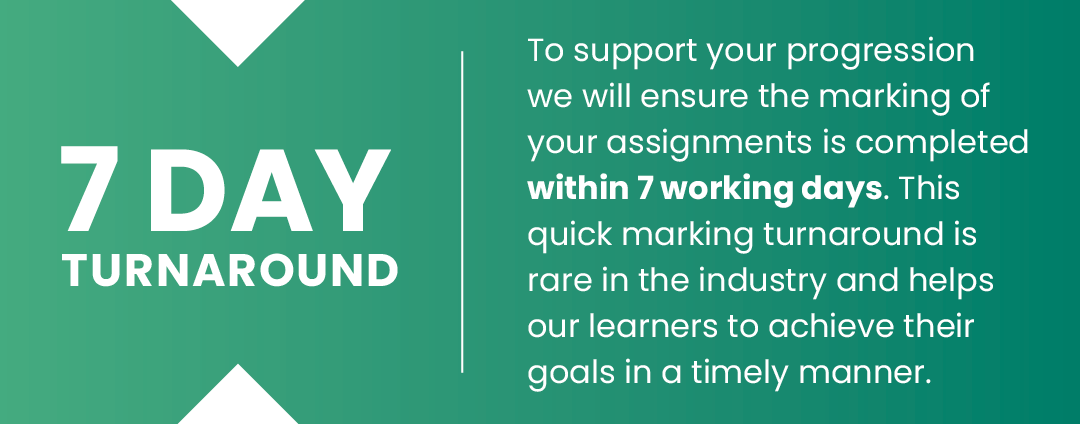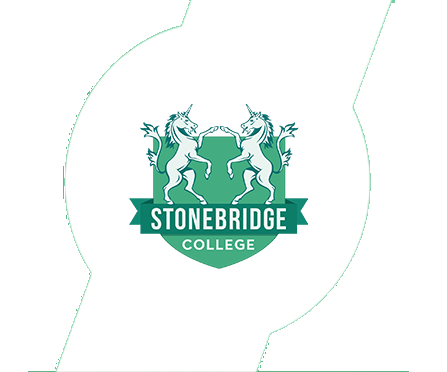Access to Higher Education Diploma (Education Professions).

Access to Higher Education Diploma (Education Professions)
Key Points
- Study the development of education
- Understand the theories of child development
- Learn about the roles and responsibilities in education
- Gain a nationally recognised qualification
- Get university ready within a year
- Start your journey towards a new career in teaching
About Your Diploma
If you're contemplating a career in teaching or seeking to advance from a support role within a school, an online Access to Higher Education Diploma (Education Professions) can be a valuable step forward.
In the past, a Certificate in Education was a common route to teaching. However, today’s standards in the UK require new teachers to hold a bachelor's degree. There are multiple pathways to achieve this, depending on whether you already possess a degree and your preferred route.
For those without a degree, the typical path involves enrolling in an undergraduate Initial Teacher Education or Training (ITET) programme at a university that offers Qualified Teacher Status (QTS). A common option is pursuing a Bachelor of Education (BEd) with QTS.
The Access to Higher Education Diploma (Education Professions) provides a solid foundation for this journey. This diploma, equivalent to three A-Levels, includes modules that are directly relevant to teaching and education, preparing you for further study.
In the course, you'll gain insights into classroom management and explore various aspects of child development, including social interaction, early socialisation, and special educational needs. You’ll also learn about the ethical use of generative artificial intelligence and develop essential study skills for university.
Getting Started
Stonebridge Associated Colleges is the leading UK distance learning provider. This Access to Higher Education Diploma (Education Professions) is a Level 3 nationally recognised qualification regulated by the Quality Assurance Agency for Higher Education (QAA).
It has been designed to prepare you for the level of study required in university. With this qualification, you will gain the knowledge and skills needed to study education at degree level and go on to become a qualified teacher.
You will get the opportunity to develop a comprehensive understanding of what it means to be a Teacher, which will prepare you for further studies.
Studied completely online, you’re free to learn around any existing work or family commitments. With the ability to log on when it suits, you will be provided with an Individual Learning Plan that outlines the submission deadlines for your assignments. On average, learners take 9 to 12 months to complete their Access to Higher Education Diploma. This flexibility often enables students to be finished within a year.
You will benefit from access to a dedicated team of tutors who will give you guidance and support as you progress through the different academic subjects within your diploma. They’ll provide you with constructive feedback on your work, so you know where you need to focus your attention to succeed.
There are also flexible payment methods available, reducing the obstacles in the way of education and helping you take that next step to your new career in teaching.
Learning with us…
On successful completion of the Access to Higher Education Diploma (Education Professions), (QAA aim code: 40012840), you will receive a Skills & Education Group Access, QAA recognised, Access to Higher Education Diploma at Level 3. As part of your programme, you will also receive help as well as guidance on your university application and the research you need to do to get the most out of your diploma.
An access validating agency with a strong social purpose to recognise achievement, particularly for those who have benefited least from their previous educational experiences, Skills and Education Group Access supports the needs of learners, providers, businesses and communities.
As part of the Awarding Organisation requirements, to receive certification for this training course you must be subscribed for a minimum period of 9 months. The minimum subscription period is measured in total months subscribed, which do not have to be consecutive.
This means that if your personal circumstances change (time available to study, financial pressures etc.), you can cancel/pause your study and payments at any time. If you decide to return to your studies at a later date, you can simply reactivate your subscription and continue from where you left off (we will save all your course progress). Using our subscription service you are not tied into a credit agreement.
To study an Access to HE Diploma you must be resident in the UK and have a UK postcode.
You must hold Level 2 qualifications in both English and Maths, or be working towards them alongside studying your Access to Higher Education Diploma.
University Entry Criteria
It must be reiterated that each university will set its own admission criteria. So, you must check with your desired institution if your Access to HE Diploma and other qualifications will be accepted.
In many cases, to get started on healthcare courses at university, you will need:
- A certain number of credits passed with a merit or a distinction grade
- A face-to-face interview at the university
- Literacy and numeracy assessments provided by the university
- Course-related work placements or work experience
- GCSE Grade C/4 or above in Maths and English (or equivalent Level 2 such as Functional Skills/Key Skills, etc.)
It is your responsibility to check that your Access to HE Diploma will be accepted as part of these entry requirements for your chosen degree. Stonebridge will not be held accountable if completing this Access to Higher Education Diploma doesn’t secure you a position with a higher education institution.
Minimum Age Restriction
This course is ideally suited to those who have completed full-time education but have not achieved the grades required to get into university.
Average Completion Timeframe
The average time it takes our learners to complete the course is 9-12 months.
Assessment Requirements
A range of assessment methodologies are used, including: academic report, essay, case study analysis, illustrated report, journal article, portfolio, academic poster, presentation (video and audio recording), developing promotional activity, series of questions, academic writing skills tasks.
In addition to the qualification units, you will also be required to complete short introductory tasks at the start of your course to support the development of your academic study skills.
Exams Required
There are no exams included in the assessment of the course.
Additional Requirements
Learners must be actively studying for a minimum of six months before results can be ratified and certificates ordered. The six month period does not start until you have completed and passed the course induction and you must be submitting assignments regularly (in line with the deadlines in your Individual Learning Plan) to meet this six month requirement. Certificates can only be issued once your course is paid for in full.
Certification Timeframe
You can expect to receive your certificate 12-16 weeks from your final assignment being marked and graded, depending on the time of year. You will be provided with regular updates throughout the certification process so that you are fully informed of your individual timeframes.
Module 1: Academic Writing Skills
Upon successful completion of this module, you will:
- Be able to structure a written response
- Be able to develop a structured response to a plan
- Be able to present the response appropriately for audience and purpose
- Understand how to apply academic writing principles to own work
Module 2: Reading and Note Making
Upon successful completion of this module, you will:
-
Understand a range of reading strategies
-
Understand the use of language in terms of the purpose and context of a range of texts
-
Be able to use methods for developing notes from a range of sources
Module 3: Family
Upon successful completion of this module, you will:
-
Understand the relationship between the family and the wider society
-
Understand role relationships within the family
-
Be able to evaluate the influence of feminism on the study of the family
Module 4: Current Developments in Education
Upon successful completion of this module, you will:
- Understand recent changes in the organisation and control of schools
- Understand current key issues in education policy
- Understand the range of institutions which exist in the school sector
Module 5: Child Development Early Socialisation
Upon successful completion of this module, you will:
-
Understand the nature/nurture debate in early socialisation
-
Understand early socialisation and the formation of attachment
-
Be able to analyse the impact of early socialisation on child development
Module 6: Nutrition and Digestion
Upon successful completion of this module, you will:
-
Understand the concept of a balanced diet
-
Be able to assess dietary needs and digestion efficiency
-
Understand the structure and function of the human digestive system
Module 7: Play in the Curriculum
Upon successful completion of this module, you will:
- Understand the role of play
- Understand theoretical approaches to play and learning
- Understand types of play for children
- Understand the characteristics of an enabling play environment
- Understand inclusive play practice
Module 8: Numeracy Skills for Primary Education
Upon successful completion of this module, you will:
- Be able to use mental arithmetic to perform a variety of functions
- Understand how to interpret and use written data
- Be able to solve written arithmetic problems
Module 9: The Safe and Ethical Use of Generative Artificial Intelligence
Upon successful completion of this module, you will:
- Understand the principles of safe and ethical use of generative AI in own subject area
- Be able to evaluate the use of generative AI tools or resources with regard to academic integrity
- Be able to evaluate safe and ethical practices in using generative AI in own subject
Module 10: Perspectives on Education
Upon successful completion of this module, you will:
-
Understand perspectives on education policy and practice
-
Understand different approaches to the organisation of the school sector
Module 11: Human Reproduction Growth and Development
Upon successful completion of this module, you will:
-
Be able to analyse the structure and function of the human reproductive system
-
Be able to evaluate how hormones regulate the reproductive system throughout life
-
Understand the sequence of events from conception to childbirth
Module 12: Equality, Diversity and Inclusion
Upon successful completion of this module, you will:
-
Understand equality and Diversity
-
Know how to promote inclusion in schools/educational settings
-
Be able to analyse legislation, policies and procedures that inform equality, diversity and inclusive practice in schools/educational settings
Module 13: Literature: The Novel
Upon successful completion of this module, you will:
- Understand structure and plot within the novel
- Understand themes in the novel
- Understand the use of language in the novel
- Understand the significance of characterisation within the novel
- Understand the significance of setting within the novel
- Understand the significance of the various contexts within which novels are written
- Be able to apply a critical perspective to a novel
Module 14: Safeguarding
Upon successful completion of this module, you will:
- Understand the legislative requirements regarding safeguarding and welfare of children, young people and vulnerable adults
- Understand the role of the person responsible for safeguarding within a professional setting
- Understand how to recognise safeguarding concerns when working with children, young people and vulnerable adults
- Understand how to report safeguarding concerns when working with children, young people and vulnerable adults
Module 15: Social Interaction
Upon successful completion of this module, you will:
-
Understand theories of Social Influence
-
Understand the impact of social roles and norms on behaviour
-
Be able to evaluate the application of social influence theories in real-life contexts
Module 16: Working with Children with Additional Needs
Upon successful completion of this module, you will:
- Understand biological and environmental factors which may result in children needing additional support
- Understand how the Early Years practitioner supports children’s socialisation and behaviour within the classroom
- Understand how personal experiences, values and beliefs impact on the role of the Early Years practitioner when meeting children’s additional needs
- Understand the Early Years practitioner’s need for professional and personal support when working with children with additional needs
In addition to the qualification units, you will also be required to complete a course induction which comprises of three short introductory tasks to support the development of your academic study skills.

Your work will be assessed through your end of unit assignments. These will provide you the opportunity to check up on your knowledge and advance. After each assignment your tutor will offer feedback to help you not only progress further but also improve your skills.
In addition to the qualification units, you will also be required to complete short introductory tasks at the start of your course to support the development of your academic study skills.
This Access to HE Diploma is a Level 3 Quality Assurance Agency (QAA) regulated qualification. To successfully achieve your qualification, you will need a total of 60 credits. Of these, 45 will come from graded units of academic content, while the following 15 will be drawn from ungraded units concerning study skills.
What's Included
- All study materials
- Study Guide
- Full Tutor and Admin support
- The course fee includes the awarding body registration and certification fee (valued at up to £96.00).
VALUE
Annual
- 100% Online
- Full Tutor Support
- No Credit Checks or Credit Agreement
Monthly
- 100% Online
- Full Tutor Support
- No Credit Checks or Credit Agreement
Free 7-Day Trial
Register for a 7-day FREE trial (your payment details will be taken at checkout but not charged). Once the trial period ends you will be charged the monthly fee unless you cancel. Cancel Anytime. No Commitment.- 100% Online
- Full Tutor Support
- No Credit Checks or Credit Agreement
Key Points
- Study the development of education
- Understand the theories of child development
- Learn about the roles and responsibilities in education
- Gain a nationally recognised qualification
- Get university ready within a year
- Start your journey towards a new career in teaching
About Your Diploma
If you're contemplating a career in teaching or seeking to advance from a support role within a school, an online Access to Higher Education Diploma (Education Professions) can be a valuable step forward.
In the past, a Certificate in Education was a common route to teaching. However, today’s standards in the UK require new teachers to hold a bachelor's degree. There are multiple pathways to achieve this, depending on whether you already possess a degree and your preferred route.
For those without a degree, the typical path involves enrolling in an undergraduate Initial Teacher Education or Training (ITET) programme at a university that offers Qualified Teacher Status (QTS). A common option is pursuing a Bachelor of Education (BEd) with QTS.
The Access to Higher Education Diploma (Education Professions) provides a solid foundation for this journey. This diploma, equivalent to three A-Levels, includes modules that are directly relevant to teaching and education, preparing you for further study.
In the course, you'll gain insights into classroom management and explore various aspects of child development, including social interaction, early socialisation, and special educational needs. You’ll also learn about the ethical use of generative artificial intelligence and develop essential study skills for university.
Getting Started
Stonebridge Associated Colleges is the leading UK distance learning provider. This Access to Higher Education Diploma (Education Professions) is a Level 3 nationally recognised qualification regulated by the Quality Assurance Agency for Higher Education (QAA).
It has been designed to prepare you for the level of study required in university. With this qualification, you will gain the knowledge and skills needed to study education at degree level and go on to become a qualified teacher.
You will get the opportunity to develop a comprehensive understanding of what it means to be a Teacher, which will prepare you for further studies.
Studied completely online, you’re free to learn around any existing work or family commitments. With the ability to log on when it suits, you will be provided with an Individual Learning Plan that outlines the submission deadlines for your assignments. On average, learners take 9 to 12 months to complete their Access to Higher Education Diploma. This flexibility often enables students to be finished within a year.
You will benefit from access to a dedicated team of tutors who will give you guidance and support as you progress through the different academic subjects within your diploma. They’ll provide you with constructive feedback on your work, so you know where you need to focus your attention to succeed.
There are also flexible payment methods available, reducing the obstacles in the way of education and helping you take that next step to your new career in teaching.
On successful completion of the Access to Higher Education Diploma (Education Professions), (QAA aim code: 40012840), you will receive a Skills & Education Group Access, QAA recognised, Access to Higher Education Diploma at Level 3. As part of your programme, you will also receive help as well as guidance on your university application and the research you need to do to get the most out of your diploma.
An access validating agency with a strong social purpose to recognise achievement, particularly for those who have benefited least from their previous educational experiences, Skills and Education Group Access supports the needs of learners, providers, businesses and communities.
Module 1: Academic Writing Skills
Upon successful completion of this module, you will:
- Be able to structure a written response
- Be able to develop a structured response to a plan
- Be able to present the response appropriately for audience and purpose
- Understand how to apply academic writing principles to own work
Module 2: Reading and Note Making
Upon successful completion of this module, you will:
-
Understand a range of reading strategies
-
Understand the use of language in terms of the purpose and context of a range of texts
-
Be able to use methods for developing notes from a range of sources
Module 3: Family
Upon successful completion of this module, you will:
-
Understand the relationship between the family and the wider society
-
Understand role relationships within the family
-
Be able to evaluate the influence of feminism on the study of the family
Module 4: Current Developments in Education
Upon successful completion of this module, you will:
- Understand recent changes in the organisation and control of schools
- Understand current key issues in education policy
- Understand the range of institutions which exist in the school sector
Module 5: Child Development Early Socialisation
Upon successful completion of this module, you will:
-
Understand the nature/nurture debate in early socialisation
-
Understand early socialisation and the formation of attachment
-
Be able to analyse the impact of early socialisation on child development
Module 6: Nutrition and Digestion
Upon successful completion of this module, you will:
-
Understand the concept of a balanced diet
-
Be able to assess dietary needs and digestion efficiency
-
Understand the structure and function of the human digestive system
Module 7: Play in the Curriculum
Upon successful completion of this module, you will:
- Understand the role of play
- Understand theoretical approaches to play and learning
- Understand types of play for children
- Understand the characteristics of an enabling play environment
- Understand inclusive play practice
Module 8: Numeracy Skills for Primary Education
Upon successful completion of this module, you will:
- Be able to use mental arithmetic to perform a variety of functions
- Understand how to interpret and use written data
- Be able to solve written arithmetic problems
Module 9: The Safe and Ethical Use of Generative Artificial Intelligence
Upon successful completion of this module, you will:
- Understand the principles of safe and ethical use of generative AI in own subject area
- Be able to evaluate the use of generative AI tools or resources with regard to academic integrity
- Be able to evaluate safe and ethical practices in using generative AI in own subject
Module 10: Perspectives on Education
Upon successful completion of this module, you will:
-
Understand perspectives on education policy and practice
-
Understand different approaches to the organisation of the school sector
Module 11: Human Reproduction Growth and Development
Upon successful completion of this module, you will:
-
Be able to analyse the structure and function of the human reproductive system
-
Be able to evaluate how hormones regulate the reproductive system throughout life
-
Understand the sequence of events from conception to childbirth
Module 12: Equality, Diversity and Inclusion
Upon successful completion of this module, you will:
-
Understand equality and Diversity
-
Know how to promote inclusion in schools/educational settings
-
Be able to analyse legislation, policies and procedures that inform equality, diversity and inclusive practice in schools/educational settings
Module 13: Literature: The Novel
Upon successful completion of this module, you will:
- Understand structure and plot within the novel
- Understand themes in the novel
- Understand the use of language in the novel
- Understand the significance of characterisation within the novel
- Understand the significance of setting within the novel
- Understand the significance of the various contexts within which novels are written
- Be able to apply a critical perspective to a novel
Module 14: Safeguarding
Upon successful completion of this module, you will:
- Understand the legislative requirements regarding safeguarding and welfare of children, young people and vulnerable adults
- Understand the role of the person responsible for safeguarding within a professional setting
- Understand how to recognise safeguarding concerns when working with children, young people and vulnerable adults
- Understand how to report safeguarding concerns when working with children, young people and vulnerable adults
Module 15: Social Interaction
Upon successful completion of this module, you will:
-
Understand theories of Social Influence
-
Understand the impact of social roles and norms on behaviour
-
Be able to evaluate the application of social influence theories in real-life contexts
Module 16: Working with Children with Additional Needs
Upon successful completion of this module, you will:
- Understand biological and environmental factors which may result in children needing additional support
- Understand how the Early Years practitioner supports children’s socialisation and behaviour within the classroom
- Understand how personal experiences, values and beliefs impact on the role of the Early Years practitioner when meeting children’s additional needs
- Understand the Early Years practitioner’s need for professional and personal support when working with children with additional needs
In addition to the qualification units, you will also be required to complete a course induction which comprises of three short introductory tasks to support the development of your academic study skills.

Your work will be assessed through your end of unit assignments. These will provide you the opportunity to check up on your knowledge and advance. After each assignment your tutor will offer feedback to help you not only progress further but also improve your skills.
In addition to the qualification units, you will also be required to complete short introductory tasks at the start of your course to support the development of your academic study skills.
This Access to HE Diploma is a Level 3 Quality Assurance Agency (QAA) regulated qualification. To successfully achieve your qualification, you will need a total of 60 credits. Of these, 45 will come from graded units of academic content, while the following 15 will be drawn from ungraded units concerning study skills.
What's Included
- All study materials
- Study Guide
- Full Tutor and Admin support
- The course fee includes the awarding body registration and certification fee (valued at up to £96.00).
Our Advisors.
Our team of course advisors are keen to help.
Call us now on 0121 392 8288
Alternatively, please complete the form below and we’ll get back to you as soon as possible.
Our student support team is here for you.











